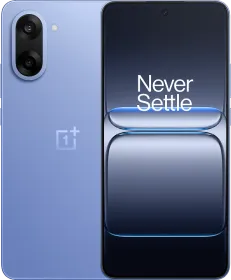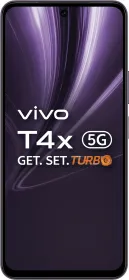In an era where data is considered the new oil and its security and ownership have become paramount concerns for Indian businesses, Synology is positioning itself as the go-to solution for the country’s burgeoning small and medium business (SMB) sector. At Computex 2025, we sat down with Michael Chang, Regional Sales Manager for the APAC MEA region at Synology, to understand how the company is evolving in one of the world’s fastest-growing digital economies — India.
While speaking with Smartprix, he reveals the company’s ambitious plans for India and why the nation’s “little giants” represent the biggest untapped opportunity in the storage solutions market. He also discussed building trust with startups, simplifying NAS adoption for everyday users, and the often misunderstood controversy surrounding hard drive compatibility.
ALSO READ: Motorola Razr 60 Review – Save You Money, Skip the Hype
From Startups to “Little Giants”: India’s Role in Synology’s Growth
India’s small and medium-sized businesses (SMBs), along with its burgeoning startup ecosystem, are at the center of Synology’s regional growth plans.
“We’ve had a 30% CAGR from 2022 to 2025. But where we see the most untapped potential is in what I call the ‘little giants’ — the SMBs, the startups,” said Chang. “That entrepreneurial spirit matches perfectly with what Synology was built for — desktop-first, affordable, secure solutions.”
Chang emphasized that while many enterprise players are chasing big-ticket clients, Synology is doubling down on those often overlooked by traditional storage giants. He explained: “India is really well known for its entrepreneurial spirit. However, a lot of big companies have not focused on these little giants.”
Competing with Giants by Thinking Smaller — and Smarter
How does Synology win SMB trust in an increasingly cloud-native world? Chang believes it’s all about value, flexibility, and ownership.
“Our solutions are feature-rich, competitively priced, and bring enterprise-grade functionality to smaller businesses,” he said. “You get storage, backup, surveillance, productivity — and most of it is included without extra licensing fees.”
Synology’s DSM software — long praised in tech circles — was highlighted as a key differentiator. With tools like Active Backup, Synology Drive, and Surveillance Station all deeply integrated and free to use, DSM offers businesses a streamlined, cost-effective alternative to stitching together third-party software.
ALSO READ: Realme GT7 Review: Flagship Killer Returns?
Cloud Is Here, But Hybrid Is the Future
Chang acknowledged that while cloud has been the buzzword, many Indian businesses still feel uneasy about fully giving up control.
“With cloud, you don’t have 100% data ownership because it’s stored elsewhere, and it’s hard to predict costs due to subscription pricing,” Chang said. “We see growing demand for hybrid solutions.”
Synology’s hybrid approach addresses both concerns effectively. When businesses purchase a Synology NAS, they get on-premises installation with 100% data ownership, combined with a one-time fee structure that eliminates subscription surprises.
Synology’s strategy here is to offer on-premises NAS with 100% data ownership and an optional cloud backup via Synology C2. Though its data centers are currently in the US and EU, C2 acts as a cloud extension for global teams that need off-site redundancy and hybrid sharing. He believes the Synology C2 solution is ideal for Indian companies expanding abroad.
What Sets DSM Apart: Security and Simplicity
Chang was direct when asked why DSM continues to earn praise. “Security is at the core of everything,” he said. “We build for end users, especially professionals. When you buy a Synology NAS, you don’t just get hardware — you get an entire software suite with storage, backup, surveillance, and productivity.”
For Indian SMBs, that can mean fewer vendors, fewer licensing headaches, and more predictable budgeting.
AI-Powered NAS? It’s Already Happening
While many brands are still strategizing their AI future, Synology has already taken meaningful steps. “Your Synology NAS can act as an AI console, allowing users to interact with popular AI platforms like ChatGPT, Google Gemini, or Microsoft Azure AI while keeping confidential data masked.
“We’ve added AI features to Synology MailPlus, Office, and even our surveillance systems — facial recognition, license plate detection, and more.”
Importantly, Synology ensures data masking, so sensitive information never leaks to third-party AI providers. “All the confidential data – person’s name, address, account numbers–will not be leaked to these third-party AI providers,” Chang assured.
Vendor Lock-in? Here’s Synology’s Side
One of the most debated Synology decisions lately has been requiring certified drives in newer models like the DS925+ (review). Critics have called this vendor lock-in, but Chang didn’t shy away from the controversy and clarify the company’s position.
“There’s a misconception that this is a vendor lock-in,” he said. “The truth is, it’s about ensuring performance and reliability. We’ve implemented around 7,000 hours of robust performance testing on our HDDs to ensure end users have the most optimal experience.”
He claims that Synology is not closing the door and they’ve opened a validation program for third-party drives, and all major vendors are already engaged.
“All the major vendors have already contacted our related teams internally and they’re working closely to be on the hardware compatibility list,” Chang revealed, suggesting that compatibility options will expand in the coming months.
BeeStation, Simplified NAS for Everyone

At Computex, Synology unveiled the BeeStation 8TB — a plug-and-play NAS for personal users that doubles as a Plex server, supports semantic search, and backs up from iCloud and Android.
“The BeeStation caters mostly to the consumer segment. It’s for people who want NAS functionality without needing to be IT experts,” Chang said. “It’s a huge step toward mass adoption.”
Security First: From Firmware to White-Hat Collaboration
Synology’s commitment to cybersecurity is serious — and unusually transparent. The company employs what Chang described as “in-house hackers” and maintains a bounty program encouraging white hat hackers to identify vulnerabilities.
“We have an internal team called PSIRT, basically our in-house hackers,” Chang said. “Plus, we run a bug bounty program, encouraging white-hat hackers to test our systems. Vulnerabilities are typically patched within 24 hours.”
Mission: Private Cloud for All
When asked to summarize Synology’s mission in one line, Chang was succinct:
“Building a better world with data. We want to be the world’s largest private cloud provider — where customers have 100% ownership and complete peace of mind.”
This interview was conducted during Computex 2025, where Synology announced several new products, including the expanded BeeStation lineup and enhanced AI integrations across its product portfolio.
You can follow Smartprix on Twitter, Facebook, Instagram, and Google News. Visit smartprix.com for the latest tech and auto news, reviews, and guides.


































